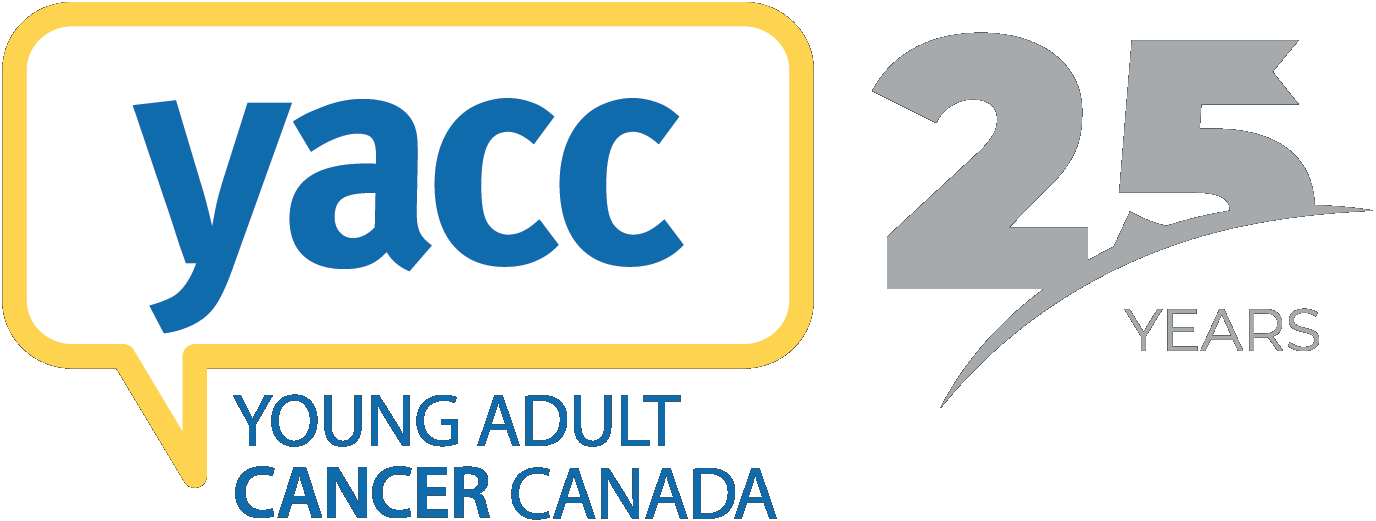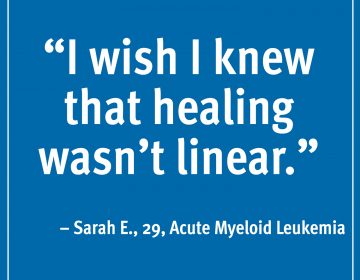The following was submitted by an author who wished to remain anonymous.
I take care of young cancer patients on a day-to-day basis as a healthcare professional. I am also a very recent cancer survivor; I’ve been in remission for less than a year.
I’ve been working in this healthcare field for five years, and my diagnosis story is a bit of a crazy one. In 2018, I was taking care of a young adult who had an uncommon and aggressive type of cancer, and I suddenly started feeling some severe pain. Twenty four hours later, I had surgery. Three weeks after that, I was diagnosed with the same type of cancer. Obviously it wasn’t contagious, it was just a very bad coincidence.
Apparently the tumour had been growing for a while with no symptoms at all. After many months of chemotherapy and several surgeries, it all finally started to settle in.
Death is such a tough topic. Healthcare professionals, for the most part, are really uncomfortable talking about it because it’s seen as a failure of medicine. Family members are uncomfortable talking about it because it’s scary to think that we will one day lose someone close to us. It’s almost as if we’ve all taken for granted that we’re just going to be immortal.
When I was getting chemotherapy, a lot of my friends and colleagues suddenly stopped talking to me. It hurt me at first, but then I realized that they were just scared, scared of seeing such a powerful dynamic woman suddenly look like the opposite. I would look at them, and they would avert their eyes.
And to be honest, I remember how I felt about watching cancer patients going through treatment before I got sick. Outside of my health care professional role, I felt scared, too. And health care providers, while often excellent at taking care of others, are often shocked with their own mortality. They are the ones who save the day, not the ones who need assistance. They care about their patients tremendously, but often cannot identify with them.
“Health care providers, while often excellent at taking care of others, are often shocked with their own mortality. They are the ones who save the day, not the ones who need assistance.”
A society that can’t talk about death is a society that can’t mentally prepare loved ones for it. A society which cannot accept that each individual has a body that will start breaking down is a society that cannot accept vulnerability. It is a society which becomes obsessed with the myth of endless youth. Somehow, the lack of acceptance of vulnerability and impermanence feels like a very big loss.
When my hair started growing back and when I started working again, more people would talk to me. They were comfortable that I looked “back to normal,” as if death wasn’t something that could be considered as a potential outcome again.
But they all don’t know that although my tumour was indeed caught early, I still have a significant chance that I won’t make it to my 35th birthday, and an even more significant chance that I won’t make it to my 40th. I look healthy, but I still see my oncologist often.
When I found out that level of uncertainty about my future, I figured I had two or three options:
Option one
Live like I did before, as if the percentage didn’t exist since it’s just an abstract percentage after all. I know several cancer survivors who have done this successfully, and who have told me that for all they know, they could be hit by a bus tomorrow. I’m actually jealous of them. This is an option that I’ve tried extremely hard to follow, but it unfortunately hasn’t worked for me. If it works for you, great!
Option two
The second option is to run, and keep running because the idea of non-existence and more physical suffering is extremely scary. Run far, far away and hide. Stay in bed for a very long time. No one would blame me for running and hiding. It is a very reasonable option, considering the circumstances. It’s ok to not be ok.
My experience and my new coping skills tell me this road is risky for my mental health. I’ve unconsciously tried this option before when I was going through treatment and when I went into remission, and my mental health plummeted. And the more my mental health worsened, the harder it was to get out of bed. I was lucky to have the support to keep me going; I don’t know what I would have done without it.
My mental health is better now, and I’m lucky enough to be able to consciously skip this option. I allow myself to cry often and to rest often, and then I start moving again. But I’m sure that if my mental health suddenly deteriorates again, I might slip into this option again. And if that happens, I will wait until the storms pass, and then I will do my absolute best to keep moving.
Option three
For now, I have silently chosen a third option. The third option is to accept the percentage — completely. I can accept the risk that there is a significant chance I’m going to die within the next few years. I can stare at the possibility of death in the face, and then focus on what I feel is important with the full knowledge of life’s impermanence.
Acceptance has caused me to live and think differently. Life becomes more beautiful when it is more fragile.
I don’t get as stressed out about smaller things now, and when I do, it doesn’t bother me for as long. I can forgive people more quickly. I spend more time with my family now. I would always help people before, but now I feel emotionally close to the people I help. I am willing to accept help. I’ve decided that the most empowering thing I can do is to consciously choose to live according to my values. Choosing how to live in the face of death is much more powerful and empowering than always thinking about what will happen in my future.
“Choosing how to live in the face of death is much more powerful and empowering than always thinking about what will happen in my future.”
You see, in the face of scary percentages and uncertainty, in the face of invisible but physically disabling long-term side effects, I can still actively and constructively choose to live with peace and kindness for others in the time I have left.
I can consciously let myself feel calm and happy instead of always unconsciously filling myself with anger and fear. I can actively choose to appreciate the butterflies and the snowflakes. I can open my heart to beautiful friendships. I can be vulnerable. I can be hurt and be sad, and then get back up. And I can look at my patients with cancer and not think that we are on completely different planes, even though they will never know I have a diagnosis, too.
And that choice to follow my value systems in front of everything cancer has taken away from me is what makes me empowered, happy, content, and peaceful. It’s what’s made me decide to continue to work with cancer patients so soon after my diagnosis, even though almost everyone who knows about my situation thinks I’m nuts. I’m aware that there are sometimes challenges when I am at work, and I often notice the suffering of young adults who have a similar diagnosis to me. In my new acceptance of personal vulnerability, I sometimes grieve and feel sad, but the fulfillment of the work for others carries me forward. And as long as my mental health can handle it, I will continue my work with peace and determination for as long as I can.
Yesterday I felt like someone was using me as a scapegoat in my job, and I was sad about it. I had to think about my values before deciding how I was going to address the situation. I decided to be graceful, and that decision was empowering.
I decided years ago that I wanted to dedicate my life to helping people to the best of my ability, but I often wonder what will happen when one day, I am not physically able to do my job or volunteer work. That day will come, regardless of what happens with my cancer.
I think the key thing I have to remember is that I am more than the sum of the roles I play. Even before being a healthcare professional, a daughter, a wife, a volunteer, and many other things, I am a worthy, valuable human being who is grateful to be present and alive.
Somehow, that realization makes me feel more spiritually at peace.
And now, because of cancer and and the acceptance of death, I can choose how to live.








